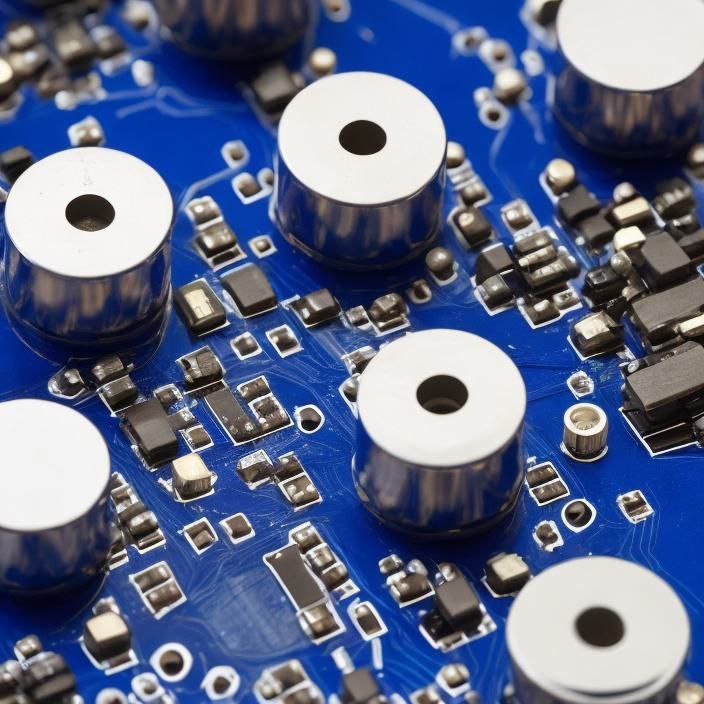
Scientists Develop Algorithm for Accurate Calculation of Quantum Systems
Researchers from the MIEM HSE Centre for Quantum Metamaterials, jointly with colleagues from Germany and the UK, have proposed an algorithm for the automated compression of arbitrary environments (ACE). It opens up exciting new possibilities for the precise calculation of the dynamics of quantum systems. According to the scientists, the new method can assist in the design of quantum computers and novel communication systems. The study findings are published in Nature Physics.

Astrophysicists Look into a Powerful Gamma-ray Burst
An international team of scientists including a HSE researcher have detected a rare optical emission from one of the most powerful gamma-ray bursts in the history of observation. The team measured the parameters of the environment, from which the emission originated, and proceeded to construct a model that simulates the behaviour of gamma-ray bursts. This contributes to our understanding of why such bursts are accompanied by electromagnetic radiation in the visible range. The findings have been published in Nature Astronomy.

Attainment of Happiness in Psychologically Mature Individuals Linked to Pursuit of Meaning
Austrian psychiatrist Viktor Frankl believed that the quest for meaning constitutes a fundamental and intrinsic motivation for all human beings. Some other authors suggest that the need for meaning or purpose only emerges at higher levels of personality development. According to a team of psychologists from HSE and the University of Paris Nanterre, individuals who have achieved higher levels of ego development are inclined to relinquish hedonistic motives in favour of cultivating mindfulness and embarking on a quest for meaning. These findings have been published in Frontiers in Psychology.

Russian Physicists Developed the Fastest Algorithm for the Simulation Motion of Microparticles in a Plasma Flow
Physicists from the Joint Institute for High Temperatures of RAS, HSE University, and Moscow Institute of Physics and Technologies have developed the first open-source GPU-based code for the simulation of microparticles motion in a plasma flow. OpenDust is optimised for graphics accelerators, that allows it to calculate the forces acting on microparticles significantly faster than existing alternatives. A paper with the findings has been published in Computer Physics Communications.

Russian Researchers Discover New Approach to Combatting Osteoarthritis
A team of researchers from HSE University, the Russian Academy of Sciences Zelinsky Institute of Organic Chemistry, and Molecular Technologies, LLC have jointly proposed a new treatment for osteoarthritis. This is currently the first disease-modifying osteoarthritis drug to act simultaneously on bone and cartilage tissue metabolism and on inflammation. The study findings are published in Scientific Reports.

Married Men Less Prone to Workplace Burnout
Greater marital satisfaction lowers the risk of professional burnout, with this correlation being more pronounced among men than women. This is a conclusion made by HSE psychologists after conducting a study on the effect of social interactions on workplace burnout on a sample of 203 employees from several Russian companies. According to the researchers, gaining a better understanding of the specific aspects of burnout experienced by individuals makes it possible to address this syndrome more effectively. The paper has been published in Organizational Psychology.

Russian Scientists Present New Application for Nanophotonic Sensor
A joint research team from HSE, Skoltech, MPGU and MISIS has developed a compact sensor for biochemical analysis, opening up a new frontier in the development of the ‘lab-on-a-chip’. Using bovine serum albumin film as an example, the researchers proved that the chip surface can be adapted for selective analysis of multicomponent solutions. Along with enabling accurate blood tests with only 3 to 5 microliters of blood, the chip will help doctors to detect specific disease markers. The study was published in Analytical Chemistry.

Russian Scientists Discover Method for Enhancing the Capacitance of Supercapacitors
A supercapacitor is a device capable of rapidly storing and releasing a significant amount of energy within a matter of seconds. It consists of metal electrodes immersed in an electrolyte solution. In their model, MIEM HSE scientists substituted the conventional low-molecular-weight electrolyte with a polyelectrolyte, resulting in an unexpected and adverse physical phenomenon: supercapacitors experience a reduction in capacitance when the pore size of the electrode is below 1 nm. By carefully selecting optimal conditions for polyelectrolytes, it becomes possible to develop supercapacitors that are not only more robust but also more efficient in their performance. The study has been published in Physical Review E.

Factors Affecting Alcohol Consumption Are Shaped in Childhood
Economists and sociologists who study alcohol consumption patterns often link them to people's living conditions and human capital such as education, work experience, and knowledge. Researchers of the HSE Laboratory for Labour Market Studies and the HSE Laboratory for Studies in Economic Sociology have found that non-cognitive skills developed in childhood and adolescence can have a major effect on the likelihood of alcohol abuse later in life and can diminish the role of education in this respect. The paper has been published in the Journal of Comparative Economics.

Microgravity Rewires Connectivity in Cosmonauts' Brains
After studying the brain scans of 13 Russian cosmonauts who participated in space missions to the ISS from 2014 to 2020, scientists discovered that prolonged exposure to microgravity had an impact on the connectivity of the brain structures responsible for adapting to unfamiliar conditions. The study revealed that these connections may not always return to their original state after the flight. The paper has been published in Communications Biology.


Application deadline: May 20